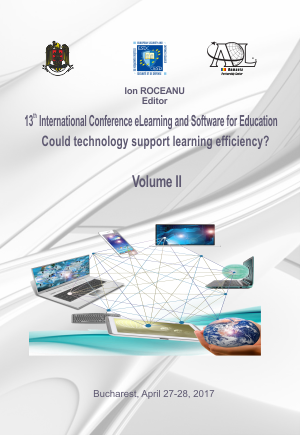COMPUTERISED LANGUAGE ASSESSMENT: LIMITATIONS AND OPPORTUNITIES
COMPUTERISED LANGUAGE ASSESSMENT: LIMITATIONS AND OPPORTUNITIES
Author(s): Tatiana Rasskazova, Anna MUZAFAROVA, Julia DAMINOVA, Anna OKHOTNIKOVASubject(s): Social Sciences
Published by: Carol I National Defence University Publishing House
Keywords: computer-based language assessment; adaptive tests; testing software.
Summary/Abstract: Over the last several decades advances in technology have permeated almost every aspect of education, foreign language teaching and assessment being no exception. There are a huge number of easily available technological resources, yet language teachers and those involved in designing language tests still need to gain greater familiarity with the potential benefits and challenges associated with the use of digital technology. The paper describes some of the existing digital tools for developing, administering and scoring language tests (Hot Potatoes, Moodle and AST-TEST software complex developed by a team of Russian programmers) and examines their advantages and drawbacks based on Ural Federal University's first-hand experience. The article then discusses the general advantages and limitations of computerised language tests related to their validity, reliability, practicality and impact. The essential features of the two main types of computer-based language tests (linear and adaptive) are examined: the authors advocate the use of adaptive tests exploring their multiple benefits. Special focus is given to some of the commercially-available computer-based adaptive tests of English-language proficiency (Oxford Online Placement Test, Cambridge English Placement Test, English First Standardised English Test, TOEFL IBT, BULATS, Lingua Leo, etc.); their positive and negative sides are critically evaluated. The issue of computer-assisted assessment of productive language skills is also explored, through analysing some of the existing marking software tools and computerised English-language tests that include productive skills components: the authors conclude that the idea of it being possible seems far-fetched at present. Nevertheless, the authors are broadly in favour of computer-assisted language assessment and their overall conclusion is that increased awareness of the existing digital assessment instruments, as well as of the potential opportunities and challenges related to their use would only be beneficial both for teachers and learners.
Journal: Conference proceedings of »eLearning and Software for Education« (eLSE)
- Issue Year: 13/2017
- Issue No: 02
- Page Range: 173-180
- Page Count: 8
- Language: English

